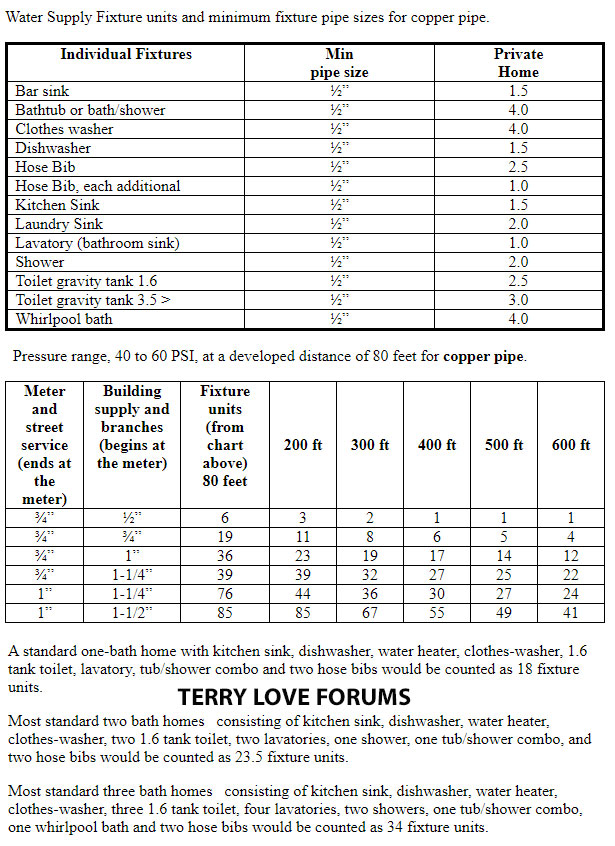Gilles Guezille
New Member
The local water company wants me to install a shut-off valve, a pressure valve, and a check valve, in a separate box from the meter. This is a brand new installation as the house was on a well before. I will be running 1" pipe to the house, thinking of using PVC unless there is something better out there.
1st question: is there a preferred order to install these 3 devices?
2nd question: there is a 3/4 inch pipe threaded at the end coming from the meter. I tried attaching a 3/4 FIP and it won't fit. Do I need an adapter of sort?
3rd question: is PVC OK? The distance to the house is 125 ft
1st question: is there a preferred order to install these 3 devices?
2nd question: there is a 3/4 inch pipe threaded at the end coming from the meter. I tried attaching a 3/4 FIP and it won't fit. Do I need an adapter of sort?
3rd question: is PVC OK? The distance to the house is 125 ft

